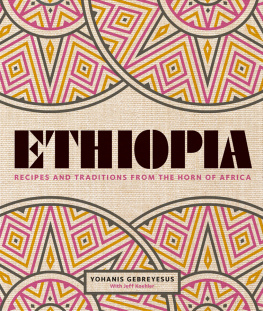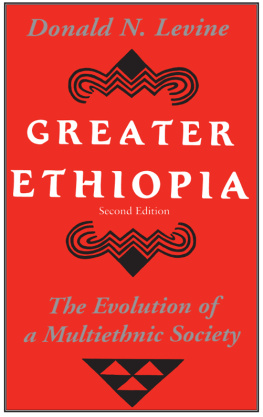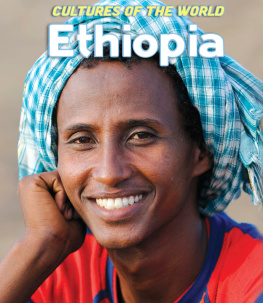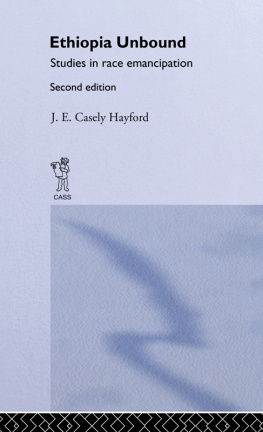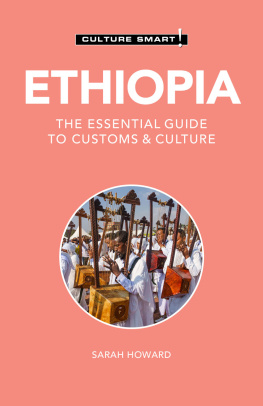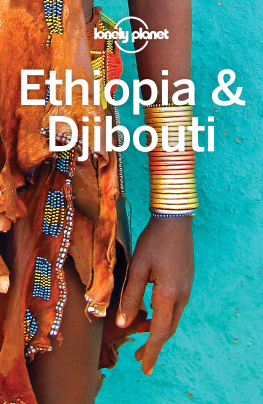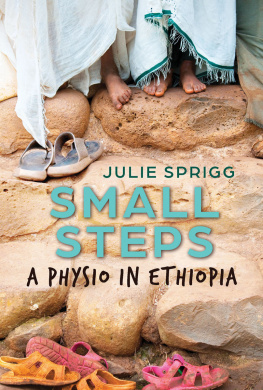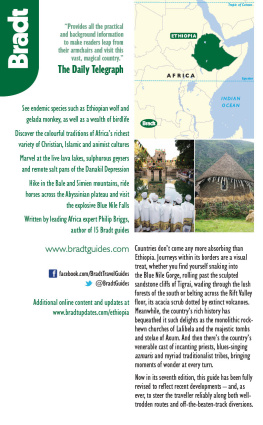Gebreyesus - Ethiopia
Here you can read online Gebreyesus - Ethiopia full text of the book (entire story) in english for free. Download pdf and epub, get meaning, cover and reviews about this ebook. year: 2018, publisher: Octopus, genre: Home and family. Description of the work, (preface) as well as reviews are available. Best literature library LitArk.com created for fans of good reading and offers a wide selection of genres:
Romance novel
Science fiction
Adventure
Detective
Science
History
Home and family
Prose
Art
Politics
Computer
Non-fiction
Religion
Business
Children
Humor
Choose a favorite category and find really read worthwhile books. Enjoy immersion in the world of imagination, feel the emotions of the characters or learn something new for yourself, make an fascinating discovery.
- Book:Ethiopia
- Author:
- Publisher:Octopus
- Genre:
- Year:2018
- Rating:5 / 5
- Favourites:Add to favourites
- Your mark:
- 100
- 1
- 2
- 3
- 4
- 5
Ethiopia: summary, description and annotation
We offer to read an annotation, description, summary or preface (depends on what the author of the book "Ethiopia" wrote himself). If you haven't found the necessary information about the book — write in the comments, we will try to find it.
Ethiopia — read online for free the complete book (whole text) full work
Below is the text of the book, divided by pages. System saving the place of the last page read, allows you to conveniently read the book "Ethiopia" online for free, without having to search again every time where you left off. Put a bookmark, and you can go to the page where you finished reading at any time.
Font size:
Interval:
Bookmark:



Select one of the chapters from the and you will be taken to a list of all the recipes covered in that chapter.
Alternatively, jump to the to browse recipes by ingredient.
Look out for linked text (which is in blue) throughout the ebook that you can select to help you navigate between related recipes.
You can double tap images to increase their size. To return to the original view, just tap the cross in the top left-hand corner of the screen.
( )
ZARA YACOB (THE FIRST ETHIOPIAN PHILOSOPHER, DURING ATSE SUSUNIOS DYNASTY, 17TH CENTURY) WROTE NATURE ORDERS US TO EAT FINE AND TASTY FOOD, WHILE HIS DISCIPLE WOLDE-HIWOT TRANSCRIBED CHOOSE THE BEST MEALS, PREPARE THEM CAREFULLY, SKILLFULLY AND CLEANLY. GOD GAVE YOU THE WISDOM TO PREPARE MEALS THAT ARE TASTY ENOUGH TO FEED YOUR SOUL.
It is said that the Queen of Sheba, Nigist Makeda, visited King Solomon bearing gold, precious stones and spices. The Books of Chronicles in the Old Testament documents this, commenting that Never again came such an abundance of spice (10:10; II Chron. 9:1-9) as those our Queen gave to the King. Gold remains a valuable currency today, yet among all the gifts she offered, only the spices were mentioned as objects of attention that even the Wise Ruler never saw again.
Food is an object of survival, an entity believed to feed the body and soul across different cultures around the world. In Ethiopia on the other hand, it holds another crucial dimension, one that conveys a positive human energy through a powerful saying enebla. Enebla, in Amharic, translates to let us eat and our staple food injera is made in a way that invites more than one hand to the meal. It is a moment of sharing, of caring and of showing respect for one another.
Through the numerous dynasties and civilizations that surfaced and vanished across this land, meals have always been at the core of them all. This passion and worth we attribute to food has allowed our crafts to sharpen beyond imagination. With more than 3,000 years of culinary legacy, we continue to treasure these gastronomic gifts, and today, I am honoured to share the mysteries of their confection to the world and to you on behalf of those who worked hard to preserve them.
From berbere, the spice blend that takes more than three days to achieve complexity within heat, to injera, our gluten-free daily teff flatbread, which also requires three moons to acquire the perfect elasticity and taste, and of course let us not forget coffee, the countrys first culinary gift to the world, this book will open your eyes to culinary wonders from Ethiopia, the Land of Origins.
Born in Addis Ababa, Ethiopia, I grew up in a typical Ethiopian family where traditional ceremonies and social events like Mahber (community bonding celebrations) were broadly practised. Whenever festivities came around I used to follow my mother in the kitchen while she prepared a large pot of niter kebbeh (Ethiopian spiced clarified butter), which flavoured all the delicious meals for the guests we would welcome. As a young boy, then as tall as the kitchen table, I couldnt observe all the spices that were added but I could smell each of them and, as greedy as I am for such sublime aromatic beauty, I would walk all day next to her, holding her dress, eyes closed and my nose raised to the celling.

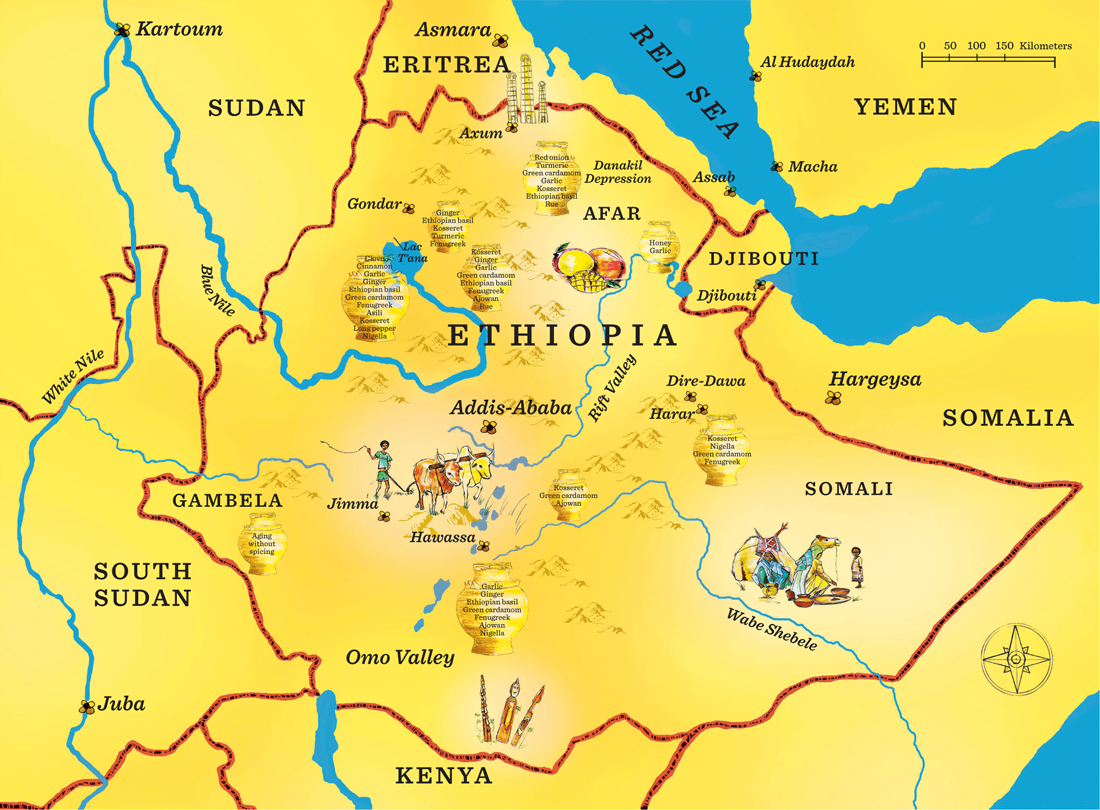
Passionate about art in all its forms, I eventually ventured into the culinary arts industry by studying at the Paul Bocuse Institute and fine-dining restaurants in the southern cities of France, which ultimately allowed me to see food as more than just an interest. On one hand I witnessed a science that requires the utmost precision, and on the other, I developed a keen curiosity for discovering new tastes. This education allowed me to travel to the four corners of the world, including a hands-on experience in a Californian luxury resort, it made me realise how much I still had to learn, but more importantly, that it was finally time to go back to my origins, in order to unfold the rich culture I am proud to be part of.
Returning to Addis Ababa, I worked on a TV show entitled Chef Yohanis Qegnet a 30-minute culinary and lifestyle entertainment show that took me all over Ethiopia, travelling across the country. By meeting people from the 80 different ethnic groups throughout the country, and sharing bread with each family, I was able to discover the culinary jewels and various processes of each region. Ive grown to believe that this interaction with every part of my country is my path to fully discovering who I am. Its given me a glimpse of the abundance of Ethiopian cuisine and the ceaseless teachings that built the key foundations of my ancestors lives.
Indeed, Ethiopia is one of the countries in the world whose pride is established on a lengthy and rich history. Situated in the horn of Africa, next to Sudan and Eritrea, it is the source of the Blue Nile, one of the two major tributaries of the River Nile. As part of the Nile countries, early Ethiopian history can be traced to more than 2000 as Abyssinia, the land of mixed races, and to having a strong relationship with Egypt during the Six Dynasty. The few old Ethiopian inscriptions from the pagan time claim Pharaohs of the Old Kingdom were kings of the two lands that in the beginning were one.
While very few traces from our pagan history remain like the obelisks of Axum, the name of my childhood best friend, Meherem, or the Ethiopian version of Mars the War God our history, and consequently our cuisine, is mainly shaped alongside Christianity. Following a close full millennia of Judaism, brought to Ethiopia with Nigist Makeda and her son Menelik I, allegedly the offspring of King Solomon, Christianity ruled.
The Ethiopian Orthodox Tewahedo church was first officially recognised when King Ezana first adopted the faith, and it has influenced our political, cultural and social life until recent years. This influence is easily identified in our cuisine via the numerous vegetarian recipes prepared during fasting seasons, a serious obligation for half a year, every year. By contrast, Islam arrived in Ethiopia during Hijrah the migration through the disciples of Prophet Mohammed. Today, a third of the country is Muslim and the religion has moulded the social life of several regions, including but not limited to, Somali, Afar, Argobba, Harar, Dire Dawa and Alaba. Islam played a crucial role in introducing sweets to the plethora of our meals. Sweets like halawa and mushebak are widely available in Dire-Dawa and Harar. Then again, the culture of eating sweets regularly did not expand throughout Ethiopia, perhaps because their confection still remains a secret known only by harari families who make and sell them.
Font size:
Interval:
Bookmark:
Similar books «Ethiopia»
Look at similar books to Ethiopia. We have selected literature similar in name and meaning in the hope of providing readers with more options to find new, interesting, not yet read works.
Discussion, reviews of the book Ethiopia and just readers' own opinions. Leave your comments, write what you think about the work, its meaning or the main characters. Specify what exactly you liked and what you didn't like, and why you think so.

